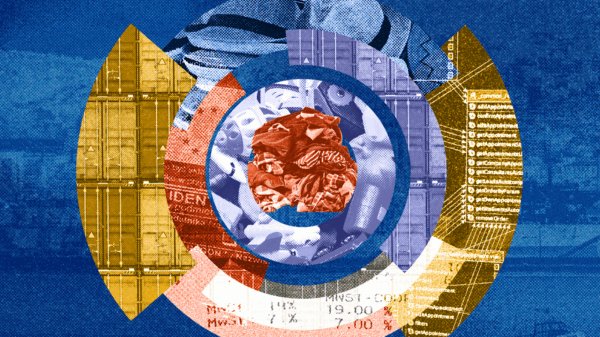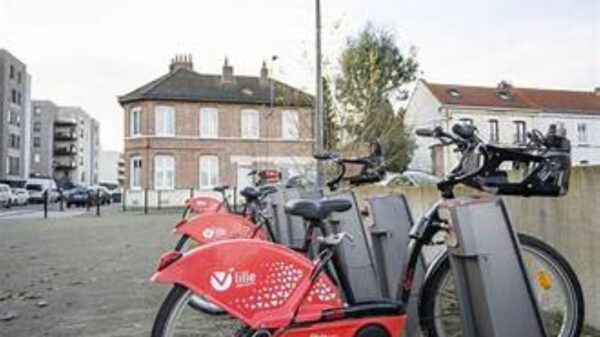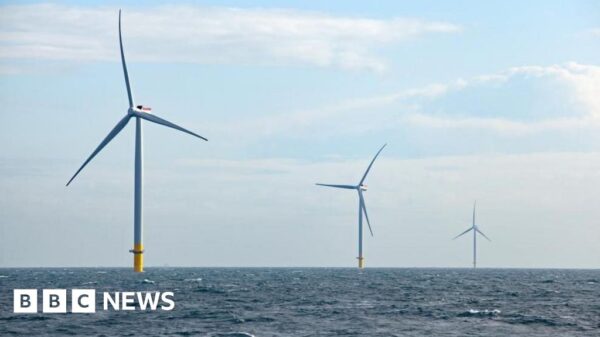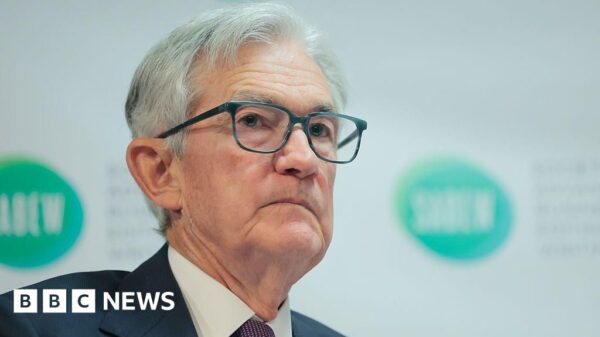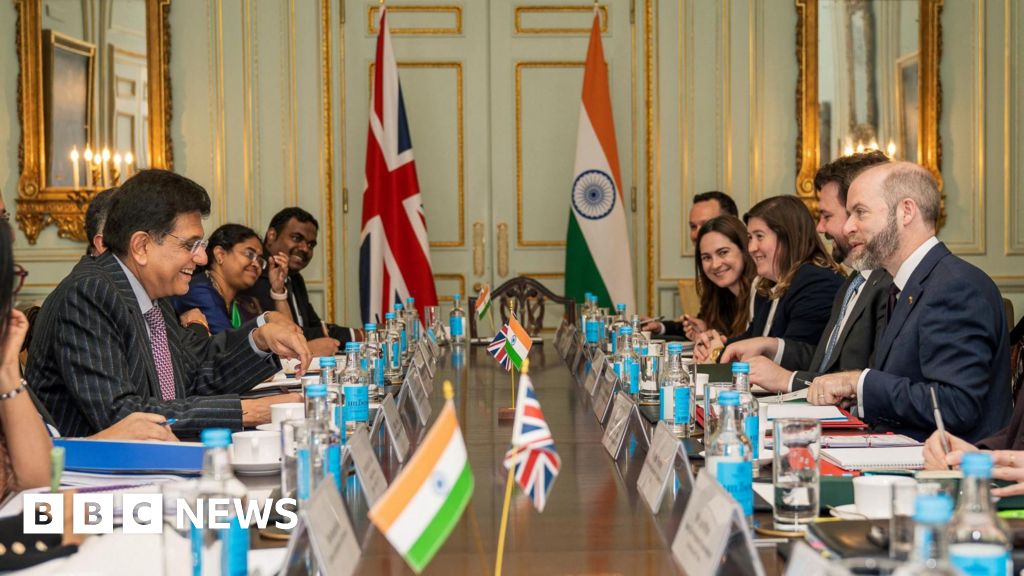Within moments of the briefing with the business secretary beginning, Jonathan Reynolds described it to us as a case study in the government’s claim to be going further and faster in doing what it can to improve living standards.
Little wonder ministers want to lean into this deal with Delhi, grappling as they are with political heat at home from their own side and their opponents.
The latest intervention comes from a caucus of Labour MPs known as the Red Wall Group, primarily representing seats in the north of England and the Midlands.
In response to last week’s elections, they are publicly critical of the government, including its handling of the removal of the Winter Fuel Payment from millions of pensioners.
Jonathan Reynolds wants to point to what he sees as the “tangible benefits” of making it easier for the fifth and sixth largest economies in the world to trade and made a point of claiming it would be the north of England, the Midlands and Scotland that would be the primary economic beneficiaries.
But remember this is the “conclusion of talks moment,” as it is described in government, not the conclusion of the deal.
Thousands of pages of text still need to be pored over and vast amounts of detail scrutinised.
And there will, in time, be a signature moment, hinted at by the prime minister in publicly accepting an invitation to visit India.
It is thought it could be another year before this is done.
The domestic political reaction to this deal has focused on one element of it: an agreement that India workers transferred to the UK and their employers won’t have to pay national insurance in the UK in their first three years here.
This, the Conservative leader and former business secretary Kemi Badenoch argued, is “lop sided” and why she didn’t sign off on the deal when she was in government.
Reform UK leader Nigel Farage said it was, simply, “taxing British workers more, taxing Indian workers less.”
British officials acknowledge this is an element of the deal India really wanted, but they argue it is worth it in the round and standard practice in deals like this.
And, strikingly, the Conservative reaction isn’t consistent: Sir Oliver Dowden, who sat around the same cabinet table as Kemi Badenoch as deputy prime minister, welcomed it.
There are a few key bits of context to this deal and one final observation I would make.
The context is this: the ongoing turbulence of President Trump’s tariffs and the ongoing negotiations with both the United States and the European Union over improving trade deals with both.
Progress on both is expected soon – a summit with the EU will take place in the UK later this month.
And that one last thing.
Sir Keir Starmer voted against Brexit and campaigned for another referendum in the hope of stopping it.
And yet, in a twist of fate and timing, he is the first post-Brexit British prime minister to have the political space and time to grapple with the tools leaving the EU gave whoever occupies his office, with the trade-offs and arguments that brings.


